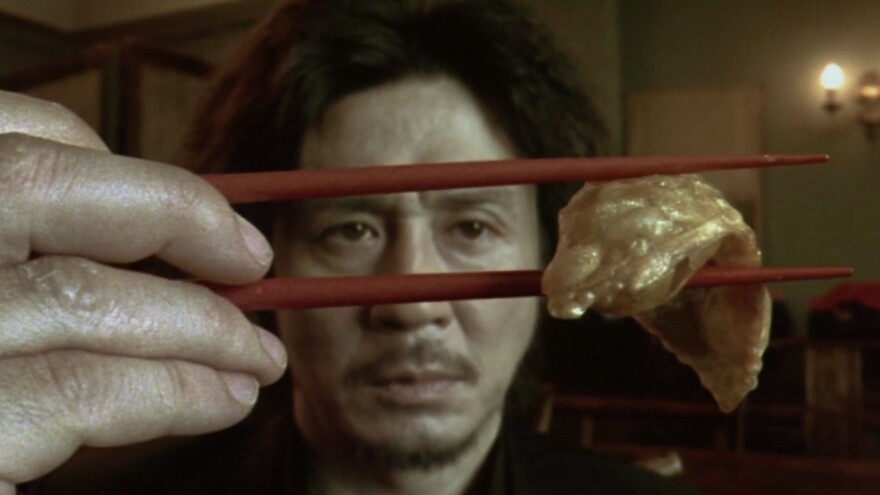NATHAN WEINBENDER:
Park Chan-wook’s Oldboy has been remastered and re-released into theaters for its 20th anniversary, and to revisit it is to sink back into a weird world that, like the ordeal of its manipulated hero, feels impossible to escape. All these years later, it maintains its visceral power.
The 2003 film was the second in Park’s so-called Vengeance Trilogy, following 2002’s Sympathy for Mr. Vengeance and preceding 2005’s Lady Vengeance, but it stands alone. It begins with a businessman named Oh Dae-su (Choi Min-sik) making a drunken spectacle of himself inside a police precinct. Next thing he knows, he awakens in what looks like a grungy motel room he can’t leave. He goes slowly mad, occasionally being knocked out by a gas that seeps through the vents.
And then one day, he’s released. He discovers it’s been 15 years, he doesn’t know where his daughter is, and he’s in the dark about why he was locked up and who was behind it. As he retraces the steps of a life he was forced to leave behind, Oh Dae-su encounters a young woman named Mi-do (played by Kang Hye-jeong), who instantly becomes obsessed with solving the mystery, and a younger man from his past (played by Yoo Ji-tae) who may be the key to his imprisonment.
If you’ve ever experienced Oldboy—or have even heard rumblings of its twists—you’ll know it descends into a particularly scarring brand of depravity. I’ve seen it a couple times over the years, and certain scenes and images are seared into my brain forever. But what I didn’t anticipate on this re-watch was that I had totally misremembered the order of things—some of the movie’s most memorable moments, namely a scene involving a live octopus and an exquisitely choreographed one-shot fight sequence, don’t come near the end as I had falsely recalled, but rather in the first hour.
I guess that’s appropriate for a movie that’s about the fogginess of memory and the wobbliness of time, and it’s an ideal mind-space heading into a final act full of operatic feeling, stomach-churning gore, and plot developments straight out of a Greek tragedy.
The movie remains a masterpiece of style, and Park’s regular cinematographer Chung-hoon Chung retains the pop imagery and striking angles of the original manga series that inspired it (most notably, a shot in which the camera passes through a pair of chopsticks). The way Park uses colors, music, editing tricks, optical effects to push along the story and pull us into its extreme emotions puts most contemporary filmmaking to shame. And Choi Min-sik’s performance is, of course, a marvel—he has to convince us of so many complex emotions while also possessing the timing and agility of a silent screen comedian.
Oldboy is about an all-consuming desire for revenge, how it poisons and corrupts and ultimately leaves everyone involved even emptier than they were before. It’s an outlandish melodrama, an outrageous action film, a locked-room mystery, an Edgar Allan Poe-type horror story and a character study of a man being punished for things beyond his control. It’s sick, touching, horrific, tragic and disarmingly funny at times, and it still packs a wallop.
For Spokane Public Radio, I'm Nathan Weinbender.
——
Nathan Weinbender is a co-host of Spokane Public Radio’s Movies 101, heard Friday evenings at 6:30 PM here on KPBX.



